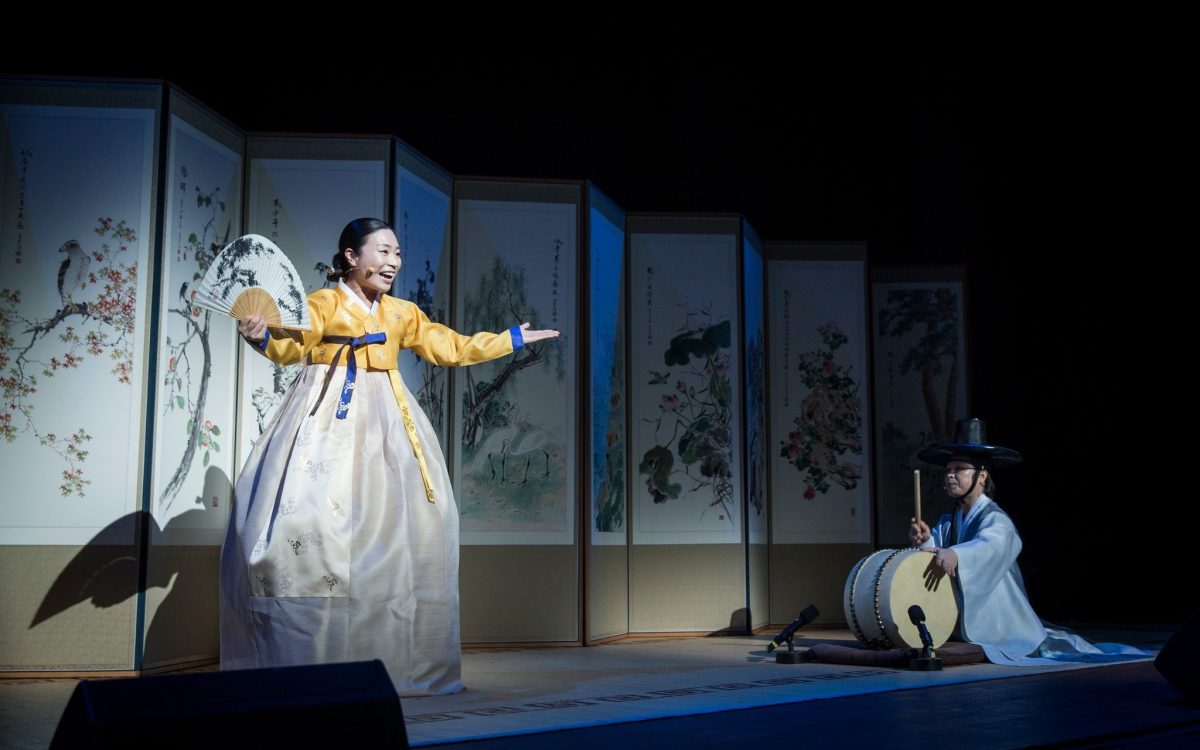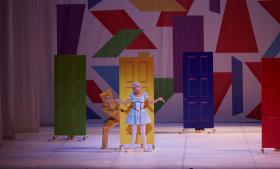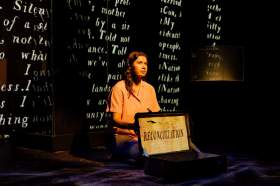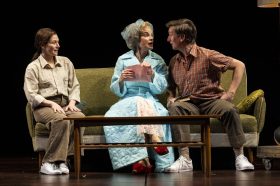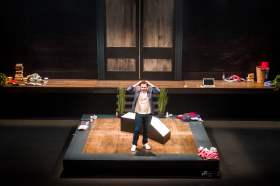Viva Korea at Riverside Theatres was a masterful display of traditional Korean folk music. Presented by musicians accredited at the National Gugak Centre, the ensemble performance featured heritage instruments like the geomungo (plucked zither), daegeum (transverse bamboo flute) and the janggu (hour-glass shaped drum). Singer Joo Eun Lee rounded out the quartet of performers with her chesty, narrative arias depicting Korean folklore.
Opening the performance with the janggu, Su Bok Seo’s leading performance was a measured percussive escalation, punctuated with timely shouts in between the sets of drumming. Sitting in the circular spotlight of the blackened stage, the performer wrung out each beat in perfect synthesis.
The piece that followed was a flute solo, with the daegeum taking centre stage. Myunghoon Lee’s performance was piercing, but the audience learned that this is an intentional technique, with the thin membrane of the flute vibrating to release the roughness of sound. While not difficult to listen to, the quality of the sound at times strained on the ears. However, this did not impact Lee’s deft handling of the instrument, nor the audience’s interest in watching his journey throughout the song.
With a nod to the Sanjo folk genre, Geomungo Sanjo was an interpretive exercise performed with the geomungo in accompaniment to one soloist. Under one white-orbed light, the geomungo solo thrummed with intensity. Differing elements of heaviness contributed to the retrospective shift in the atmosphere.
Plucked with a short bamboo stick, the black-crane zither is connected to a legendary tale where the instrument swayed the birds with its sound. The lore seems rooted in truth: even the unrulier, younger members of the audience, who shifted in their seats, seemed to still with this rendition of the folk song. The softness of the zither’s sound combined with percussion, melody and bass drew to a rousing finish, with a deepening in tone that suited the instrument’s lower register. Aesthetically, the geomungo also parallels its sound with its own colour scheme – all tar and polish.
Viva Korea found its pulse with Joo Eun Lee’s impressive balladry across the love song ‘Sarangga’ and the beloved folk song ‘Arirang’, which was performed with light choreography. While the meaning of its title, ‘Arirang’ is still up for debate, (in this instance, said to mean “treasure island” based on the southernmost tip of the Korean Peninsula), the folk song narrates a misty voyage with emotion:
‘아리랑 아리랑 아라리요
Arirang, Arirang, Arariyo
아리랑 고개로 넘어간다
Arirang gogaero neomeoganda
나를 버리고 가시는 님은
Nareul beorigo gashineun nimeun
십리도 못 가서 발병 난다
Shimrido motgaseo balbyeongnanda.
Arirang, arirang, arariyo,
Crossing over Arirang Pass.
Dear who abandoned me here
Shall not walk even ten li before his/her feet hurt’
Lee’s rendition of ‘Arirang’ resulted in the breaking out of an unplanned singalong, with Korean Australians taking part in a serendipitous harmony of audience and performer. “Ajummas” (Korean for married or middle-aged women), children and congregants alike joined in the narrative song. With over 3600 variations, ‘Arirang’, or ‘My Beloved One’, relates ideas of mutual respect, cultural heritage and belonging throughout generations. It was fitting that the song chronicles the idea of a return of nationwide hope. The homespun community that the song inspires was a suitable tribute to Australia’s own burgeoning Korean diaspora.
Read: Exhibition review: Nicholas Burridge: Built Geologies, Canberra Glassworks
Presented by Riverside Theatres and the Institute for Australian and Chinese Arts and Culture at Western Sydney University, Viva Korea presents a unified front for Korean Australians and the spreading international recognition of folkloric music from the East. It was a synchronised revisitation of the past in song.
Viva Korea was performed on 21 January at Riverside Theatres.
This review is published under the Amplify Collective, an initiative supported by The Walkley Foundation and made possible through funding from the Meta Australian News Fund.
